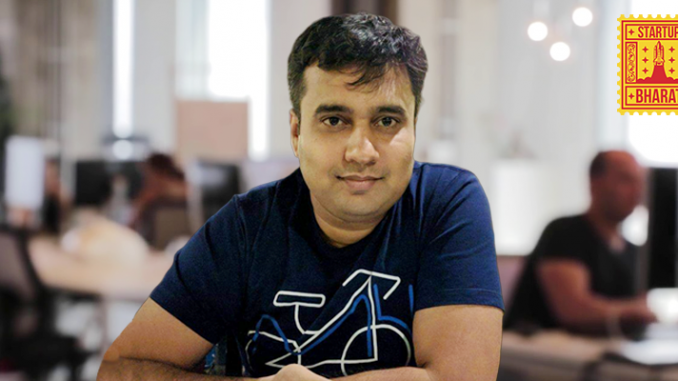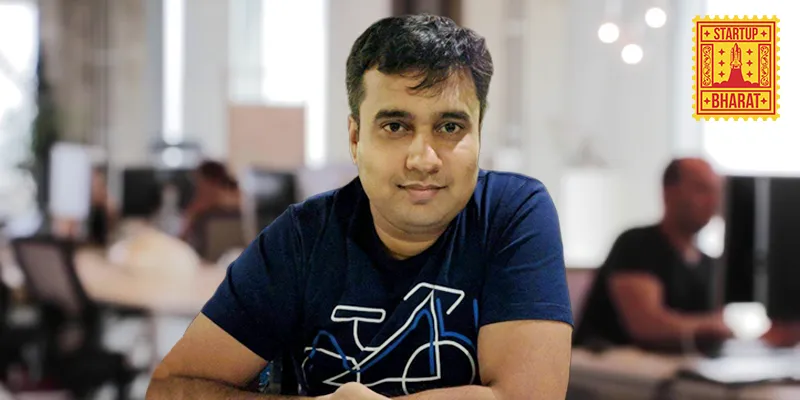
 Mulki, a picturesque beach town just outside the port city of Mangalore, isn’t synonymous with the hustle-bustle of the stock market. But an investment management startup here has in just five years amassed multiple clients and now manages assets worth over Rs 550 crore.
Mulki, a picturesque beach town just outside the port city of Mangalore, isn’t synonymous with the hustle-bustle of the stock market. But an investment management startup here has in just five years amassed multiple clients and now manages assets worth over Rs 550 crore.
Athul Kudva, Shivaram Kamath, and Prabhakar Kudva founded asset management startup Samvitti Capital in 2014. Samvitti, incidentally, translates into universal consciousness. Athul and Prabhakar are cousins while Shivaram has been a family friend for decades.
Their common passion for stock markets and the desire to explore how wealth could be generated through long-term play brought the trio together. Their backgrounds helped – Prabhakar has decades of experience of working with brokerage houses while Athul and Prabhakar have solid technology backgrounds.
In fact, the duo were part of Omnesys, a software firm that developed products for the stock market. Athul was part of the founding team while Prabhakar worked in the firm. The company in which Shivaram was an investor was sold to Thomson Reuters for an undisclosed amount in 2013.
The beginning
After a successful exit, one question came to all three: what next? “After the sale, we wanted to do something new. We decided to build a business that could be scaled up,” Prabhakar says.
An investment firm or AMC seemed the best option as all three were well versed with the stock markets. Prabhakar had started investing in the stock market at the age of 16, and they were by then “informally managing the wealth” of family and friends.
In 2014, they started Samvitti with an asset base of Rs 40 crore, a combination of the proceeds from the stake sale of Omnesys and the wealth of others they were managing. “It was people who knew and trusted us,” Prabhakar says.
The 10-year age gap between the co-founders – Prabhakar is 35, Athul is 45, while Shivaram is aged 55 – helped bring a sense of balance as they had, between them, witnessed various cycles of the market.
A clear and conscious vision
The co-founders of Samvitti were clear about their business principles: they would not engage in any kind of mis-selling of products and would have zero conflict of interest.
Interestingly, the stockbroking startup does not have any sales team at all. All their business has been generated through word of mouth or referrals.
“We consciously decided not to take the sales approach as the biggest problem in this industry is mis-selling,” Prabhakar says. “A retired guy who banks on stable earnings cannot be bought into equity markets.”
Samvitti’s brokers are Bengaluru–based Zerodha, which has been using their technology platform for trading. To ensure no conflict of interest, the startup does not share brokerage charges with Zerodha.
Today, the startup offers two main products: portfolio management services (PMS) and alternative investment fund (AIF). PMS is a simple investment instrument with a minimum corpus of Rs 25 lakh while the AIF is a hedge fund, a more complex investment activity that involves a minimum investment of Rs 1 crore.
Far from the madding crowd
But why, when Mumbai is India’s financial capital, did they decide to locate Samvitti in Mulki, a beach town 20-odd km from Mangalore? The rationale, say the founders, was “emotional and business”.
“Mulki is our native place and this is what we would have done if we were not managing other people’s money,” says Prabhakar, adding, “We love and enjoy this game of stock market.”
The co-founders also sensed a business opportunity in coastal Karnataka, which has a sizeable presence of high net-worth individuals (HNIs), including businessmen and NRIs. “There are people in Mangalore region whose investments are managed by people in Mumbai; nobody is available locally to serve them,” Prabhakar says.
Samvitti also decided not to be headquartered in Mumbai, as one can be distracted by an overload of information or umpteen meetings in the stock market trading hub. “Today, we have too much information; the people who succeed are not those who have access to it but those who can filter it,” Prabhakar adds.
This decision also helped them focus on what matters most to them: building wealth. Their background in technology, especially for Prabhakar and Athul, has helped the team build various tools/software that can sift through data and help make informed decisions.
“Having built the tech ourselves, we were confident that we can run the show from Mulki,” Prabhakar says.
Returns and customer retention
Today, Samvitti manages assets of over Rs 550 crore from around 220 customers; Rs 400 crore of these are under their PMS offering while the rest are AIF investments. All of this is being done without tie-ups with any distributor – generally the norm for every AMC.
The startup claims to have delivered an average annual return of 18-22 percent, and is counted among the top five best-performing AMCs in the country. Add to this the fact that the customer attrition rate is almost negligible.
Samvitti co-founders are “very picky” about the kind of customers they would like to have in their portfolio.
“We spend considerable time with customers, explaining to them the reasons not to invest in stock markets. Expectations have to set right as the game is more than asset management; it is about managing expectations,” Prabhakar says.
This startup looks for clients who understand the stock market and the various uncertainties associated with it. This has led to higher stickiness with their customer base despite the stock market’s up-and-down cycles.
“The demand is out there. We get calls from other cities but we are not comfortable unless we know the person,” Prabhakar says.
Future plans
Samvitti has a team of 25 people spread across three locations – Mulki, Mangalore, and Bengaluru. The startup has plans to enter Mumbai as it “represents a sizeable opportunity and there is a culture of equity markets”.
It also wants to test the international stock markets, especially in the US. “We believe that considerable innovation is happening in the US, and it is a huge opportunity. We are looking at how we can get a pie of that market,” Prabhakar says.
The founding team is unanimous they would like to continue to grow at the same pace. “We do not want to grow very fast as our main goal is not to make a profit for ourselves. We are building this business to run, not to sell; we are not playing the valuation game,” he says.
Offering some words of advice to those interested in stock markets, Prabhakar says, “The stock market works in multiple cycles, and if one can survive these without doing stupid things, there is lot of money to be made.”
[“source=yourstory”]
